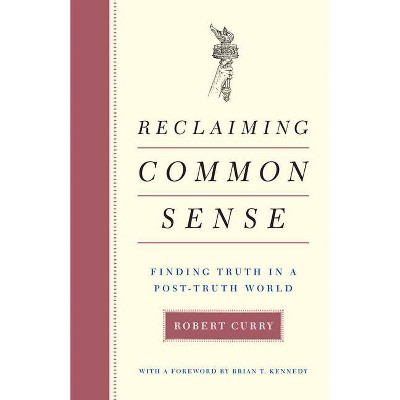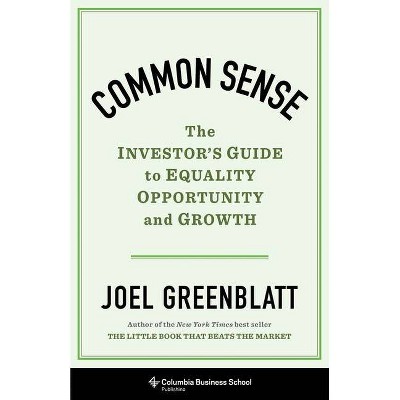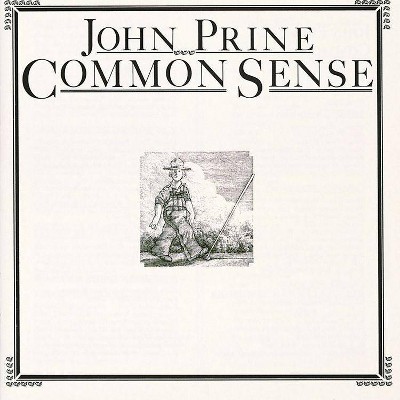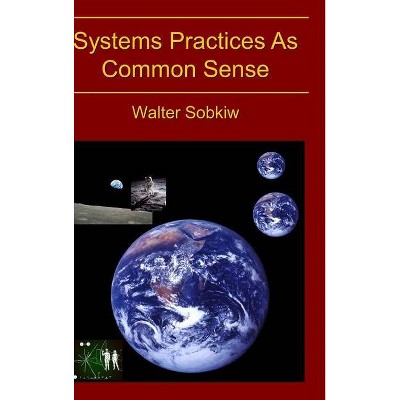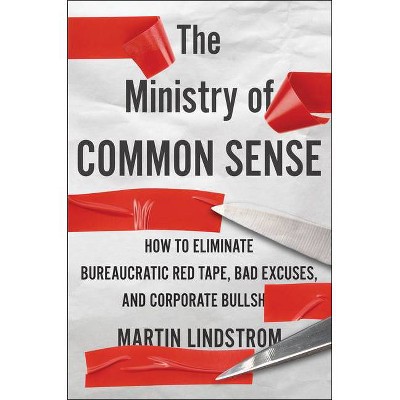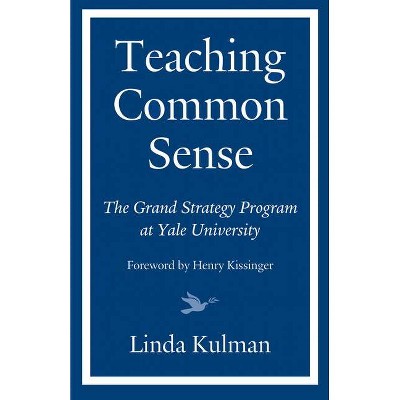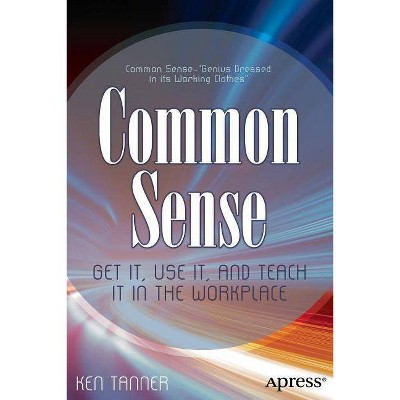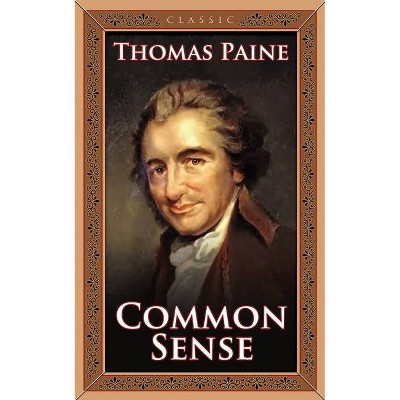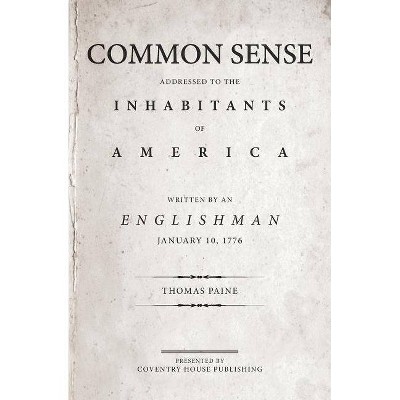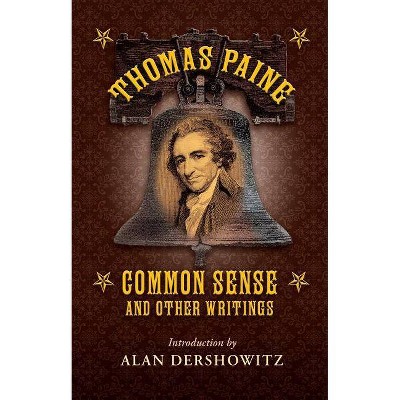Common Sense Nation - by Robert Curry (Hardcover)
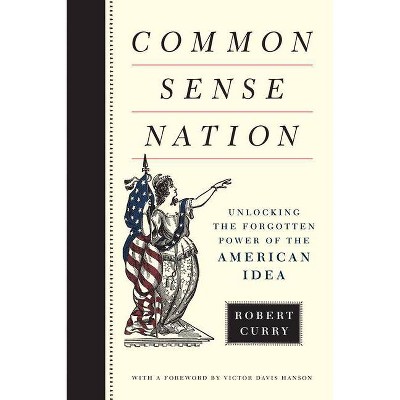
Similar Products
Products of same category from the store
AllProduct info
<p/><br></br><p><b> About the Book </b></p></br></br>""We hold these Truths to be self-evident, that all men are created equal, that they are endowed by their Creator with certain unalienable Rights, that among these are Life, Liberty and the pursuit of Happiness." We have heard and read this sentence all our lives. It is perfectly familiar. But if we pause long enough to ask ourselves why Jefferson wrote it in exactly this way, questions quickly arise. Jefferson chose to use rather special and very precise terms. He did not simply claim that we have these rights; he claimed they are unalienable. Why "unalienable"? Unalienable, of course, means not alienable. Why was the distinction between alienable and unalienable rights so important to the Founders that it made its way into the Declaration? For that matter, where did it come from? You might almost get the impression that the Founders' examination of our rights had focused on alienable versus unalienable rights-and you would be correct. In addition, the Declaration does not simply claim that these are truths; it claims they are self-evident truths. Why "self-evident"? The Declaration's special claim about its truths, it turns out, is the result of those same deliberations as a result of which, in the words of George Washington, "the rights of mankind were better understood and more clearly defined than at any former period." If a friendly visitor from another country sat you down and asked you with sincere interest why the Declaration highlights these very special terms, could you answer them clearly and accurately and with confidence? Would you like to be able to? "--<p/><br></br><p><b> Book Synopsis </b></p></br></br>"We hold these Truths to be self-evident, that all men are created equal, that they are endowed by their Creator with certain unalienable Rights, that among these are Life, Liberty and the pursuit of Happiness." <p/>We have heard and read this sentence all our lives. It is perfectly familiar. But if we pause long enough to ask ourselves why Jefferson wrote it in exactly this way, questions quickly arise. <p/>Jefferson chose to use rather special and very precise terms. He did not simply claim that we have these rights; he claimed they are unalienable. Why "unalienable"? Unalienable, of course, means not alienable. Why was the distinction between alienable and unalienable rights so important to the Founders that it made its way into the Declaration? For that matter, where did it come from? You might almost get the impression that the Founders' examination of our rights had focused on alienable versus unalienable rights--and you would be correct. <p/>In addition, the Declaration does not simply claim that these are truths; it claims they are self-evident truths. Why "self-evident"? The Declaration's special claim about its truths, it turns out, is the result of those same deliberations as a result of which, in the words of George Washington, "the rights of mankind were better understood and more clearly defined than at any former period." <p/>If a friendly visitor from another country sat you down and asked you with sincere interest why the Declaration highlights these very special terms, could you answer them clearly and accurately and with confidence? Would you like to be able to?<br><p/><br></br><p><b> Review Quotes </b></p></br></br><br>PRAISE FOR <i>COMMON SENSE NATION</i> <p/> <br>"Robert Curry has written a great book that will inform those not familiar with the Constitution, and that will spark discussion among those who are. He ends <i>Common Sense Nation</i> on an optimistic note about the 'bountiful harvest of progress to be gained' if we rediscover the Constitution." <p/>--John Tamny, <i>Forbes</i> <p/>"Written in an easy and graceful style, it is a handbook for citizens, by a citizen who loves his country dearly." <p/>--Bruce Thornton, <i>Claremont Review of Books</i> <p/>"Curry's ultimate mission is to reawaken the American citizenry to their heritage and identity and to show them the rational principles by which they can reestablish a sound political order." <p/>--Scott Segrest, <i>National Review</i> <p/>"Given that neither the schools nor the media, in disinterested fashion, teach us the history and purpose of America's founding and guiding principles, it remains the duty of citizens like Robert Curry, the writer, and we the readers, jointly to rediscover who we were and are--and how we once again can become the Americans that the Founders once envisioned." <p/>--Victor Davis Hanson<br><br><p/><br></br><p><b> About the Author </b></p></br></br>Robert Curry serves on the Board of Directors of the Claremont Institute. His reviews and articles have appeared in the <i>Claremont Review of Books, The Federalist, The American Thinker, The View From 1776, </i> and <i>Victor Hanson's Private Papers.</i>
Price History
Price Archive shows prices from various stores, lets you see history and find the cheapest. There is no actual sale on the website. For all support, inquiry and suggestion messagescommunication@pricearchive.us
